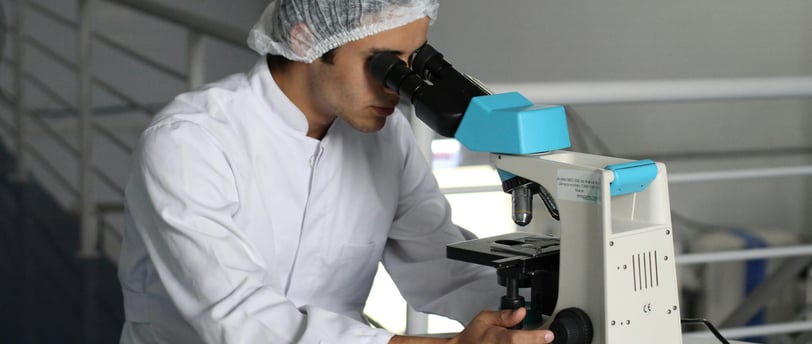Indonesia Needs More Young Scientists
After spending the last five years studying across two major institutions—one in Indonesia and the other abroad- I’ve come to a simple but powerful conclusion: Indonesia urgently needs more young scientists and researchers.
sean mauleti
6/23/20253 min read


Hello, and welcome to my blog! I'm Sean, and I’ve recently embarked on a new chapter in my academic journey, conducting research in Indonesia. After spending the last five years studying across two major institutions—one in Indonesia and the other abroad- I’ve come to a simple but powerful conclusion: Indonesia urgently needs more young scientists and researchers.
The term "scientist" can seem intimidating or even foreign to many Indonesians. There's a common perception that science and research are reserved only for a niche group of intellectuals with little relevance to the average person’s life. Worse yet, many still hold the belief that a career in science won’t provide financial stability. The stereotype persists: scientists are brilliant, sure, but they're broke.
To some extent, this fear isn't entirely unfounded. Research, especially in its early stages, doesn't always promise instant financial rewards. Unlike traditional corporate jobs, where a monthly paycheck is standard, researchers often work on grants, contracts, or freelance projects. You need to be proactive, creative, and resilient to keep the momentum going. But this isn’t a flaw of science itself—it’s a broader structural issue we need to address.
Like any career, research demands sacrifice—of time, energy, and sometimes even personal comfort. Many of Indonesia’s emerging researchers have made these sacrifices, pouring themselves into their work, only to find that their efforts aren’t adequately rewarded. Some, understandably, give up and switch paths. I’ve seen it happen with my peers.
Just this past week, a close friend of mine decided to leave the same research program I had just joined, run by BRIN (Badan Riset dan Inovasi Nasional), the national research agency. He had found a better-paying opportunity elsewhere. While he’s now working in the private sector, I'm relieved to know he's still involved in research. His decision reflects a broader truth: research can flourish both within and outside government frameworks. Whether in academia, government labs, startups, or large corporations, science has room for everyone.
It’s important to emphasize that all research matters. Government-sponsored or privately funded, applied or theoretical—every piece of knowledge we produce contributes to our national growth. Young Indonesians should be encouraged to pursue whatever opportunities come their way, not just for the money, but to build their skills, expand their networks, and develop their scientific curiosity.
That said, we also need to shift expectations. Research isn’t a “get-rich-quick” path. It takes years—sometimes decades—before meaningful breakthroughs happen or recognition arrives. The journey requires dedication, patience, and a deep love for discovery. But those who stick with it will find the rewards far exceed financial gain. The sense of creating something new, contributing to society, or solving real-world problems — these are achievements that money can’t always measure.
So, how do we ensure more young people see science not as a dead-end, but as a promising path?
It starts with education—and more importantly, with cultivating curiosity from a young age. The government can play a key role here. One of the most effective ways to spark scientific interest is through reading. Children who read learn how to think, question, and imagine. These are the same skills that form the foundation of good research. By implementing national reading programs and encouraging creative thinking in classrooms, we can plant the seeds of scientific curiosity early on.
Imagine an Indonesia where children grow up not only dreaming of becoming YouTubers or celebrities but also scientists, engineers, doctors, or inventors. That vision begins with access to books, to mentors, to learning experiences that nurture critical thinking.
As for those already in the field: stay committed. Share your stories. Be role models. Science in Indonesia needs visibility, and we—young researchers—are in the best position to show others that this path, while challenging, is deeply rewarding.
The bottom line is this: Indonesia has enormous untapped potential. We are rich in natural resources, culture, and talent. We need an ecosystem that supports curiosity, research, and innovation. If we invest in our youth and give them the tools to explore, question, and discover, there’s no telling how far we can go.
To everyone reading this, especially young Indonesians considering research: you are needed. Keep exploring, whether you're in a lab, a library, or even a startup. Keep learning. Indonesia’s future depends on minds like yours.